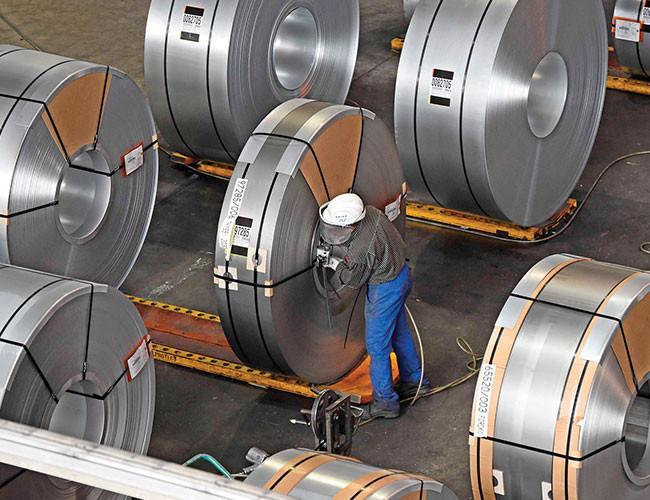German industrial production plunges in April
FRANKFURT - Agence France-Presse

Industrial production in Germany unexpectedly fell in April after rebounding in March, official data showed on June 8, adding to fears of a slowdown in Europe’s powerhouse economy.
Industrial output fell 1.0 percent month-on-month, federal statistics authority Destatis said, following an upwardly revised 1.7-percent rise in March.
The drop surprised analysts surveyed by Factset who had predicted a modest 0.25-percent increase in production.
The slump comes a day after Germany’s industrial orders disappointed again, falling for the fourth month in a row as businesses fret over trade tensions with the United States.
“The economy is clearly treading water and is not managing to shift up a gear,” said ING Diba bank analyst Carsten Brzeski.
April’s plunge in industrial production was led by declines in energy output and production of consumer and producer goods.
The only bright spot was construction output, which jumped 3.3 percent.
The economy ministry said industrial production got off to “a weak start” in the second quarter, partially because of public holidays.
But considering the steady drop in new orders, it admitted that “industrial growth is likely to slow down” in the near future.
Brzeski said it was getting “harder and harder” to blame Germany’s weak start to 2018 on one-off effects like the weather or public holidays.
“It seems as if supply-side constraints are increasingly hampering Germany’s growth prospects,” he said.
Also on June 8, Destatis issued figures showing that Germany’s oft-criticised trade surplus shrank from almost 22 billion euros ($26 billion) in March to 19.4 billion in April as imports outweighed exports.
The spike in imports is likely to be welcomed by Germany’s trade partners in Europe and the United States who frequently complain that Germany doesn’t do enough to encourage consumption at home.
U.S. President Donald Trump is one of the loudest critics of the chronic imbalance, and has in the past threatened tariffs on car imports -- a move that would hit German automakers particularly hard.
Fears of a transatlantic trade have intensified after Trump last week slapped punishing tariffs on steel and aluminum imports, prompting vows of retaliation from the European Union.
















